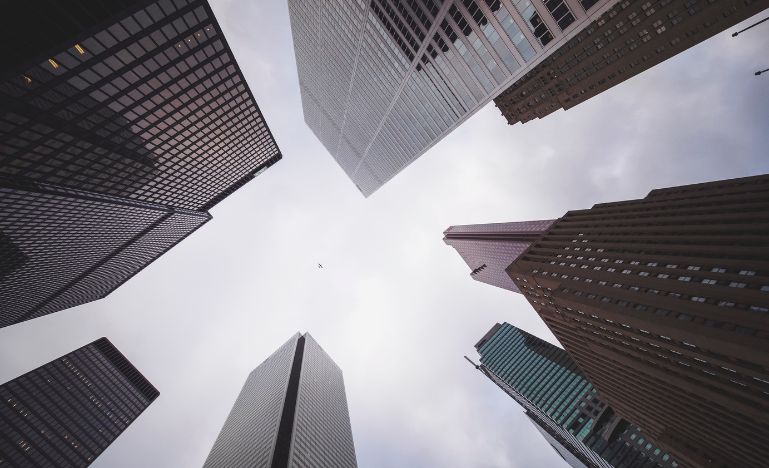A chill within the profession
The targeting of U.S. law firms by the Trump administration has led to concerns on this side of the border

These are tense times at big Canadian law firms.
South of the border, there’s a massive confrontation underway between the Trump administration and major law firms as the White House seeks retribution against firms previously involved in lawsuits against President Donald Trump or are seen as critical of his actions.
It all started when Trump signed executive orders against three firms, Perkins Coie, WilmerHale, and Jenner & Block, revoked their security clearances, re-evaluated their contracts with the U.S. government, and even denied them access to U.S. federal buildings.All three have fought back in court.
But when Paul, Weiss, Rifkind, Wharton & Garrison was also targeted, the big New York firm decided to make a deal with the White House, agreeing to sideline its diversity, equity, and inclusion (DEI) policies and provide US$40 million in pro bono legal services to Trump-favoured causes.
Three other Big Law firms have followed suit with similar deals, including Skadden, Arps, Slate, Meagher & Flom.
The tussle has caused a major split among American firms and allegations that the deal-making firms have abandoned their professional ethics and endangered the rule of law to preserve their lucrative businesses.
The impact in Canada has been indirect but has nevertheless created a chill within the profession as Bay Street firms hunker down and try to duck any fallout. They’re worried about losing business from across the border by upsetting U.S. law firms that provide them with referrals while facing disapproval from their own lawyers that they’re selling out their values.
“We are increasingly concerned about growing pressures on courts and legal professionals in the United States, including political attacks on judges and lawyers, challenges to judicial independence, and actions that risk eroding public confidence in the legal system,” CBA President Lynne Vicars said in a statement.
“History has shown that democratic stability depends on respect for legal institutions and the ability of courts and the legal profession to function without undue influence or intimidation. Any attempt to weaken these institutions not only threatens justice within a country’s borders but also has far-reaching implications for the global legal order and the shared commitment of democratic nations to uphold the rule of law.”
National approached several big Canadian firms and their partners by email or phone for comment, but received no response. Efforts to contact the Toronto offices of Paul, Weiss and Skadden Arps were also unsuccessful. A few lawyers at large Toronto-based firms were willing to talk, but only on the condition that their identities be protected.
“None of them want to say anything about this,” said a partner in one large Bay Street firm. A major concern is not to do anything that would upset clients or affect lucrative referrals from U.S. law firms.
“You won’t see a courageous stand from any of the firms. They don’t want to hamper their ability to make money.”
According to a partner in another firm, most firms simply want their lawyers to avoid any controversy.
“You don’t want to be a tall poppy in a situation like this,” they said, adding that lawyers have been warned to scrub their social media posts of controversial content, particularly if they plan to travel to the U.S.
"We have been told that when crossing the border, our devices can be searched and seized. We have been encouraged to delete our social media apps when crossing the border."
The partner also said that lawyers have been advised to enter the U.S. by air rather than through land borders. That way, if you run into trouble in pre-clearance at an airport, you're still in Canada, and you can "withdraw your request" to enter the U.S. At a land border, when a U.S. border agent is interviewing you, you are already on American soil.
Erin Durant, an Ottawa lawyer and commentator on legal issues, worked at Borden Ladner Gervais until 2021. Most of her connections are still at large law firms, and they reach out to her on a range of issues.
“I’ve heard from a lot of people in the last few months,” she said.
“They’re primarily associates and young income partners. A lot of what I’m hearing from the younger generations in the firms is that they’ve basically been told, ‘don’t talk about any of this stuff. Don’t get heavily involved in social media around it.’”
May Cheng is an intellectual property lawyer and partner at Dipchand LLP, a boutique firm in Toronto, who previously worked at large Canadian law firms for 25 years. She’s convinced Canadian law firms are anxious to drop their DEI approach to protect their revenues.
“They’re all going to drop it quietly because anybody doing any business with U.S. companies is going to be pressured into dropping it,” she said. “Where’s the commitment?”
The pressure to drop DEI is also coming from big Canadian companies like Shopify Inc., which laid off its teams supporting Black, Indigenous and women entrepreneurs and removed the DEI pages from its website.
Cheng despairs at the situation in the U.S.
“It’s terrifying. Trump has already targeted 30 law firms for DEI investigations. “It’s dystopian, Fascist, psycho stuff.”
She said that the only thing stopping Trump is the rule of law.
“Judges and lawyers are the last stand. If judges and lawyers give up, it’s over.”
Jordan Furlong, an Ottawa-based legal consultant, condemns firms like Paul, Weiss for caving to the demands of the Trump White House, but understands their motivations.
He has less sympathy for firms on this side of the border.
“Canadian big law firms are not that close to the blast radius. They’re on the outside edge. They’re not going to lose work because the president of the United States has decided they‘re his enemies,” Furlong said.
“The economic risk that large Canadian firms face is not remotely as high as it is for large American firms.”
For that reason, any move a large law firm here makes to appease the U.S. administration's discriminatory and autocratic whims is “much less understandable and justifiable.”
“You can’t let your law firms be blown by the winds of politics and popular sentiment,” Furlong said.
“A law firm is not a pizza parlour or a hair salon. It’s a business, but it’s also a professional business. The lawyers who work there took oaths to advance the rule of law. You need to have core values as a lawyer and as a law firm.”


